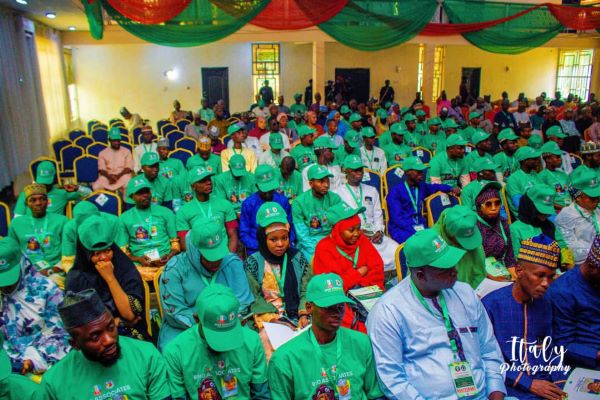On Monday, August 4th, 2025, I witnessed something truly inspiring in Sokoto — a rare show of leadership that focuses not just on brick-and-mortar infrastructure, but on people, particularly our youth.
Barrister Muhammad Bello Goronyo, Minister of State for Works, hosted a one-day intensive capacity-building workshop for social media influencers drawn from the 23 local government areas of Sokoto State.
But this was no ordinary workshop.
It was a deliberate empowerment initiative designed to train and reposition young people to become more than just online commentators. They are now strategic partners in promoting good governance, tracking development, and communicating progress — all in alignment with the 9-Point Smart Agenda of Governor Ahmed Aliyu Sokoto and the Renewed Hope Agenda of President Bola Ahmed Tinubu, GCFR.
As someone who observed the event firsthand, I saw intentionality. The Minister didn’t just gather youths for political optics. He brought them into a space of learning, reflection, and strategy — arming them with digital tools, critical thinking skills, and a sense of civic responsibility.
Why this matters: A theoretical context
This kind of initiative is not only timely — it is deeply rooted in Human Capital Theory, which posits that investment in people, especially through education and training, yields significant economic and social returns. By empowering media-savvy youths to become informed advocates of government policy, the Minister is building a more competent and development-conscious citizenry.
It also ties into the Development Communication Theory, which sees communication as a catalyst for social change. When young influencers are equipped with the knowledge and tools to disseminate accurate, constructive information, they don’t just report governance — they help shape public opinion, build trust, and strengthen democracy.
As Barrister Goronyo rightly noted during the opening session:
“Our digital space is a battlefield. If we don’t train and equip our media teams to project our successes, others will use the same platforms to distort facts and mislead the public.”
These words struck a chord with me. In an age where fake news, misinformation, and cynicism spread faster than truth, training digital communicators becomes not just relevant but urgent.
Youths as development partners
The workshop covered key themes such as narrative control, social media ethics, community reporting, and policy advocacy. It was a practical masterclass in how to harness digital power for developmental purposes.
Through this effort, Minister Goronyo has bridged the gap between youth engagement and governance performance. He has shown that empowering young Nigerians is not merely about giving handouts, but about giving tools, skills, and a platform to contribute meaningfully to national and state development.
This is what inclusive governance looks like — participatory, responsive, and forward-looking.
As a journalist, I am confident that the ripple effects of this training will be felt across Sokoto and beyond. Youths who left that event didn’t just leave with certificates — they left with confidence, vision, and a clearer understanding of their role in building a better Nigeria.
Indeed, if more public officials adopt this model of empowerment rooted in education, communication, and strategic inclusion, we will not just be building roads and bridges — we will be building people.
And that, ultimately, is the most sustainable form of development.
By Usman Mohammed Binji


